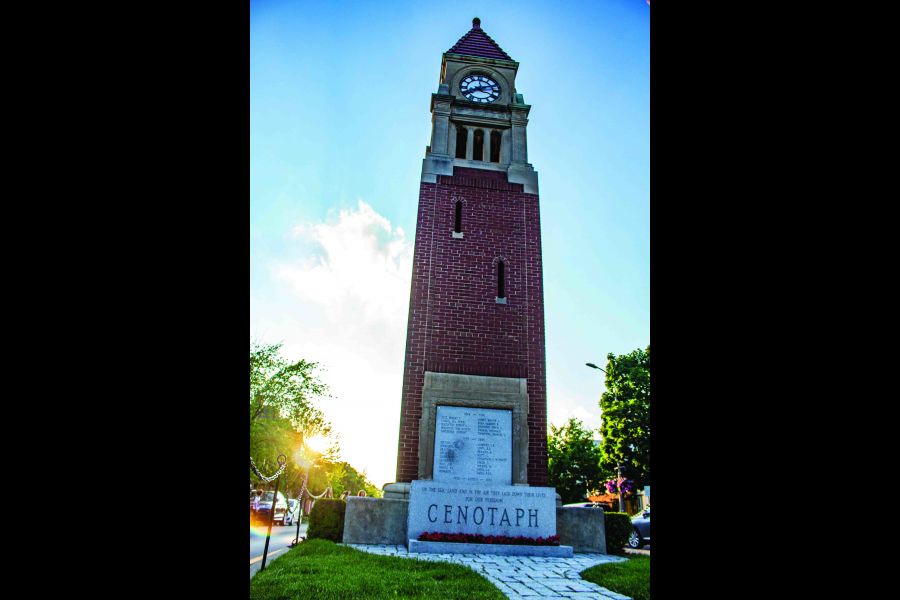Please be kind to me as I ramble way out of my depth. But we need to talk.
Hundreds of unmarked graves. Islamophobia. Micro-aggressions. LGBTQ+ conversations. An ongoing deadly global pandemic. Systemic racism. Anti-Semitism. And more …
So much to discuss. To ponder. To debate. An overwhelming time in our lives. What will Canada be in 10 years? A kinder country?
We have the ability to hear what we want to hear. To see what we want to see. To know what we want to know.
Now, let us determine to learn from the horrible events that have recently piled on us. Every person, every nation has developed in its own way and has made its own mistakes.
Let's work hard, honestly, to learn. We must greatly expand our Indigenous history teachings.
My family has strong ties to the beautiful Qu'Appelle Valley area in Saskatchewan. My dad's mother, Emiline Scott, was born in 1880.
Her dad was James Scott, a pioneer businessman who owned the Scott Stagecoach Line. Our family talked about many things and visited Fort Qu'Appelle on our way to the Calgary Stampede in 1963. Roy Rogers and Trigger were the parade marshals.
Many things were not talked about. My Granny was cool and had many friends in many parts of Canada. She loved to travel and learn.
Granny lived with us in Etobicoke and St. Catharines from 1957 to 1967, and it was wonderful to have her with us.
As I reflect because of recent reveals about Canada's Indian Residential Schools, allow me to state here that I have long thought that calling these institutions schools has been a bastardization of the noun “school.” We all think of schools as institutions for education.
My mother was a school teacher outside of Cochrane, way up north, during the Great Depression. A one-room school house, 31 students, from K to Grade 8. Schools were where Canadians taught and learned. (An aside: my mother baby sat Tim Horton for two years in Cochrane in the mid 1930s. How cool is that, Leaf Nation?)
Angelyn Francis wrote in the Toronto Star that the “network of more than 180 federal schools were designed to kill the Indian in the child.” We have learned that some 150,000 Indigenous children were taken from their families. Separate schools for European children and Indigenous children.
Many people knew and no one talked. Residential schools operated in Canada from 1828 until 1996. That's about six generations! Many people knew. Sh-h-h.
Today, should we feel horrified? Ashamed? Embarrassed? Mad? Upset? Deceived?
All of the above, but how can we progress? Let us mourn the deceased and let us educate every Canadian about this horrific genocide. We must resolve to teach the true history of our country.
As I attempt to piece things together, I can only surmise why my Granny always seemed to dislike the Catholic church. My sister and I both married Catholics, and she would have loved them. Her strong feelings about the Catholic church kinda puzzled me as a kid, but there were other things to talk about.
She smoked a pack and a half of hand rolled cigarettes a day, until one day at 78 she quit. Just like that. Cold turkey.
Back now to her life in southeastern Saskatchewan. She was raised in Fort Qu'Appelle, less than 50 miles from the Marieval Indian Residential “School.”
This is where some 751 unmarked graves were revealed last week. There were 21 other such “prisons” in Saskatchewan. What had my grandmother seen as a young person, as stage coaches travelled to and from Marieval? What stories had she heard? We will never know.
So where are we now? We are making progress, to be certain. Last Sunday, I spent two hours touring and tasting at Jackson-Triggs Winery and Reif Estates Winery. Such an inspiration, to see a group of young Canadians working hard together, having fun at their summer jobs. A variety of ethnicities, all genders.
Let's have the conversations. Let's learn and share Canada's true history.
During a telephone conversation with NOTL chief administrator Marnie Cluckie, we agreed that our pretty town has the opportunity to show the world how to be kinder, to work hard to include all locals and visitors.
Kindness will not be a “budget line.” It will be free, from our hearts. By our actions.
Wave to people on our paths, in our parks, on our streets. Or if you are too shy to wave, share a warm smile. Even with a COVID mask on.
But, above all, let's all resolve to make “Canada's prettiest town” also “Canada's kindest town.”










